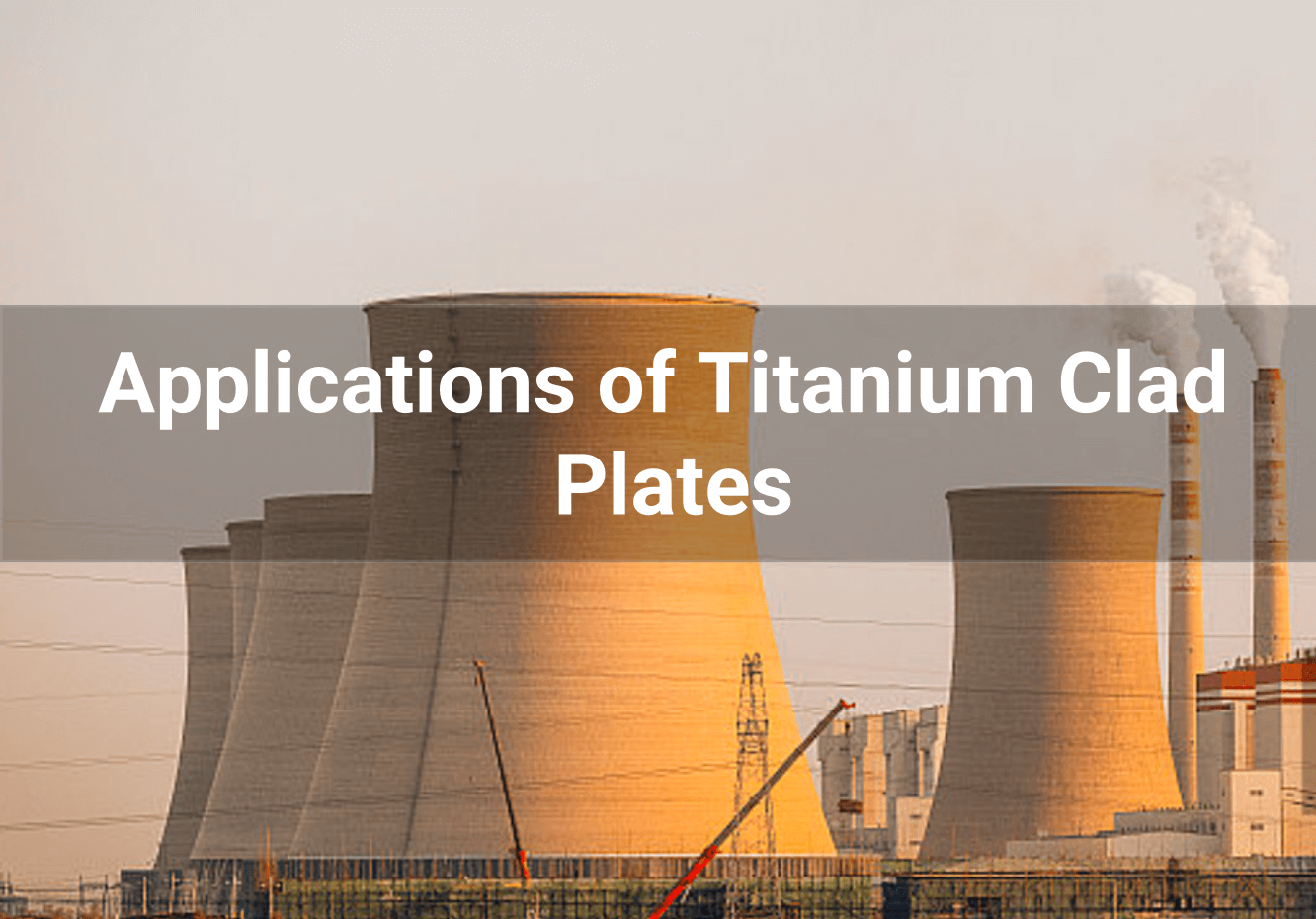


The application areas of Titanium Clad Plates mainly include petrochemical, power generation, salt production, and metallurgy. In recent years, titanium clad plates have also been widely used in wastewater treatment and marine engineering.
|
Cladding layer |
Available Grade |
Application |
|
Gr.1, Gr.2, Gr.3, Gr.4, Gr.5, Gr.7, Gr.9, Gr.11, Gr.12, Gr.16 |
Petrochemical,Power Generation,Marine,Salt Production,Metallurgy | |
|
*These are typical Grades. Please consult if your required standard/grade is out of the list. |
||
In the petrochemical industry, titanium is highly valued for its exceptional corrosion resistance and stability in acidic, alkaline, and saline environments. As a result, titanium clad plates are widely used in equipment such as distillation columns, reactors, heat exchangers, stabilizer tanks, and condensers.
Titanium clad tube sheets are especially common in shell and tube heat exchangers, frequently used in the production of corrosion-resistant pressure vessels, including tube sheets, cylinders, and heads. The typical design uses 2-3 mm thick titanium sheets, and to shorten lead times, common thickness titanium coils are kept in Fugo stock.
With rising environmental standards, many coal-fired power plants have installed flue gas desulfurization (FGD) systems. Limestone wet scrubbing is often used for desulfurization, and after the process, the flue gas, containing water vapor and SO₂, cools down, causing condensation. This highly corrosive liquid adheres to the inner walls of chimneys, leading to erosion. Thanks to its excellent corrosion resistance and cost-effectiveness, titanium clad plates are commonly used as chimney liners. They are also widely applied in condensers for power plants and in condensers and heat exchangers in seawater desalination plants.
Titanium's outstanding resistance to seawater, chloride solutions, and fluid erosion makes it an ideal material for evaporator shells in salt production equipment. It helps prevent scale buildup on evaporator walls, significantly extending cleaning intervals.
In metallurgical engineering, titanium clad plates are used in hydrometallurgical processes for pressure acid leaching of materials like cobalt-nickel sulfide concentrate, laterite nickel ore, and precious metal slags. These clad plates are used to manufacture both horizontal and vertical reactors.
Titanium clad plates are becoming increasingly essential in industries that demand superior corrosion resistance and material durability, particularly in environments that expose materials to extreme conditions. From the petrochemical sector, where titanium's resistance to acids, alkalis, and salts is indispensable, to power generation, marine engineering, salt production, and metallurgy, titanium clad plates play a pivotal role in enhancing the performance and longevity of equipment.
The high strength-to-weight ratio, corrosion resistance, and excellent stability of titanium make it ideal for use in critical components such as distillation columns, heat exchangers, reactors, and evaporator shells. By combining titanium with other metals, these composite materials offer a cost-effective solution while maximizing the benefits of both materials.
As industries continue to prioritize sustainability, efficiency, and reduced maintenance costs, the demand for titanium clad plates is likely to grow, providing a robust solution to challenging applications. Whether in harsh petrochemical environments or the energy sector, titanium clad plates ensure reliability, lower operational costs, and extended service life, positioning them as a vital material for modern engineering.Contact us now, Get more information and a quote!



Fugo Tech is focused on the manufacturing of clad metal plate and distributes the Stainless Steel, Titanium, Nickel Alloy, Zirconium and other non-ferrous metal pipes, fittings, flanges, and fasteners.